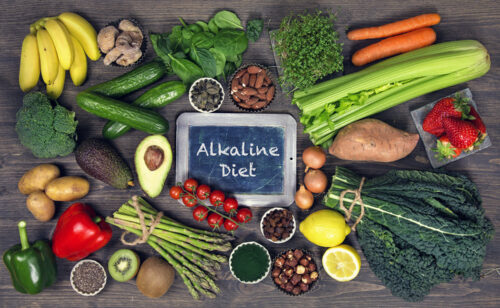Note for those not familiar with the pH scale
The pH scale measures whether or not a substance is an acid or alkaline: An acid has a pH of less than 7. The lower the pH the stronger the acid. pH 7 is neutral. An alkaline has a pH of more than 7. The highest pH is 14, which is the strongest alkaline.
You are what you eat?
-This saying is not accurate. It’s not really true either. However, what is accurate and true is ‘You are what you digest and absorb.’
Take, for instance, the example of fruits. They have an acid pH, but after eating and digesting, many types of fruits absorbed into the body then become alkaline. They give an alkaline ash residue.

